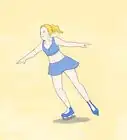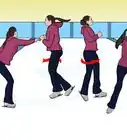wikiHow is a “wiki,” similar to Wikipedia, which means that many of our articles are co-written by multiple authors. To create this article, volunteer authors worked to edit and improve it over time.
This article has been viewed 25,209 times.
Learn more...
Figure skating is a great recreational sport for fitness, enjoyment and even competition if you're so minded. Even if you missed the chance to take up this sport when you were young, or you didn't have enough money to do so when you were a child, don't worry––it is fine to start learning it as an adult. This wonderful hobby will keep your body fit and active and you'll get to meet a lot of people with the same passion for the ice. This article explains how to get involved in ice skating as an adult.
Steps
Preparing yourself
-
1Have the right mindset that you can do this. Don't be discouraged. While many figure skaters started young, it is always possible learn something you put your willpower and effort into learning. It is important to focus on enjoying the learning first, and setting aside comparisons with the younger crew skating quickly and spinning and jumping with seeming ease. They had to begin somewhere too, and it's all about being dedicated and working towards your goal.
- Don't be held back by thinking you have to be better or faster than you are from the start. You will get there, it just takes time and practice.
-
2Get properly equipped. Wear the right clothing and gear. This isn't just about boosting your confidence, it's also a form of ensuring your safety and preventing injury. Things to consider include:
- Wear sufficiently warm clothing. Choose trousers, slacks or figure hugging long pants that allow for free movement and provide warmth. Wearing pants will help prevent ice burn and can either prevent or minimize grazing on the ice.
- Wear layered clothing. This is important so that you can dress up and down depending on how hot or cold you're feeling as you practice. Polar-fleece, merino, other wool, thermals, etc. are all good choices for preventing loss of heat and for repelling water.
- Consider appropriate accessories such as gloves, a hat and leg warmers to help keep you warm.
Advertisement -
3Borrow ice skates rather than buy them. Ice skates are not cheap and you don't want to own a pair only to discover after lesson number one that you have changed your mind and want to take up soccer instead. Things to notice with ice skates include:
- Do they fit properly? Do not wear skates that are either too small or too big, as they will cause blisters and can hamper your ability to enjoy skating.
- Are the blades sharp? There is nothing less inviting than going on the ice with blunt blades.
- If you love ice skating after a few sessions, then consider purchasing your own ice skates. Tips to help you choose can be found here.
Learning key basics
-
1Get an instructor (coach) or join a learner's class for adults. Ask a friend, family member or someone else you trust to help you learn at the beginning. Alternatively, enroll in a teen or adult class or get a one-on-one coach. In the latter case, while you will need to pay for the initial lessons, it is worth it. Putting the effort into learning the basics well at the outset will reap many rewards as you progress in your learning, as you will continue to build on these foundations and become stronger and more able as a result.
- If you do have a friend or family member help you learn for free, be sure to give them gifts to acknowledge your gratitude. Alternatively, you could barter something you know how to do that they want to learn in exchange for the skating lessons.
- Call the ice skating rink ahead of attending. Find out when is the best (quietest) time for beginner skaters to come and practice on the ice. If you want an instructor, ask whether they have such instructors available, or classes.
-
2Learn how to fall properly. This skill can help you to overcome fear on the ice. The reason why children learn faster is because they are not afraid to fall and through their numerous times of falling down, they learn. Adults tend to have mental blocks, thoughts about the various ways they are going to fall and injure themselves, and even imagery about broken bones. Perhaps you had even experienced a painful slip. However, the reality is that most falls do not cause serious injuries and are simply part of the learning process. Get trained in falling the right way from the very beginning, so that you can remove this fear quickly. See further How to fall and recover from a fall on ice.
- If you are really afraid that you might dislocate an elbow or whatsoever, wear protective gear made especially for figure skating. You can find such gear in many figure skating stores. You should find that these protective elements will give you more confidence in attempting movements that you might be afraid to do if unprotected.
- Check out How to overcome fear as a beginner figure skater for more ideas on solving worries to do with ice skating.
-
3Learn as much as you can about skating properly. If you have someone teaching you, you will likely learn faster and more correctly than struggling on your own. It can also be safer to have someone teach you, as you will learn the techniques for gliding, stopping and advancing your skills.
- For more information about the skills needed to ice skate, see further How to ice skate.
Staying motivated
-
1Practice regularly. The more you practice, the faster and more agile you'll become. If you enjoy the sport, it won't be long before you get to performing spins and jumps but you must get someone to teach you these properly.
- Figure skating requires strength for the jumps and flexibility for certain movements. You'll need to do physical conditioning and stretches regularly at home. You'll only see results if you do it regularly, preferably 3-4 times a week. Exercises such as sit-ups and planking can help to train your core muscles for a higher jump. Squats can strengthen your thigh muscles for a sit spin. Even if you haven't reach spinning and jumping yet, you could start training now so that you'll be able to master the jumps and spins faster next time.
-
2Make friends! Having friends who share the same hobbies as you can help you to learn faster. Not only you can exchange skating tips with them to help each other out, you will also feel less lonely when you are at the rink. This will make your skating experience fun and exciting. Best of all, knowing that your friends are going too will act as a motivation to keep you going!
Warnings
- Figure skates and apparels are rather expensive, therefore, purchase only when you have decided to commit to figure skating. Always choose good fit over cost.⧼thumbs_response⧽
- Ice is cold and blades are sharp. Always treat each with the utmost caution.⧼thumbs_response⧽
Things You'll Need
- Warm clothing
- Snacks and drink
- Ice skates (hire them to begin with)

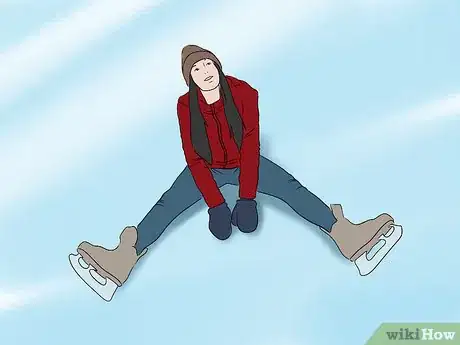
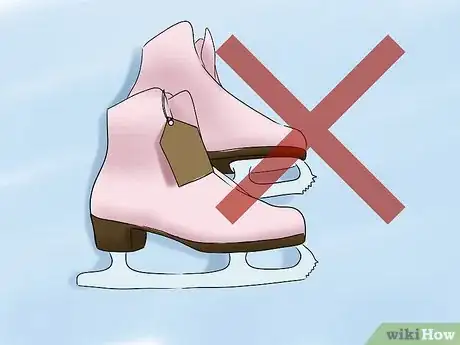
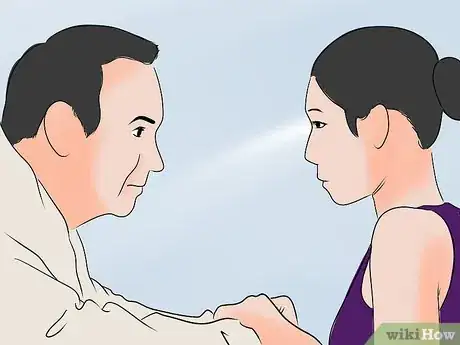
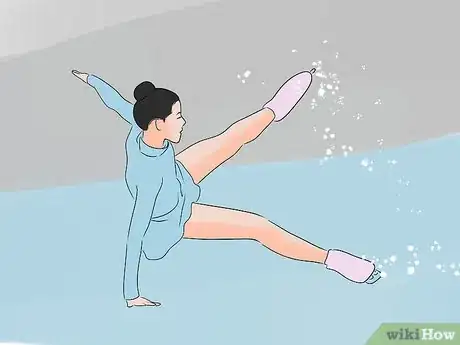
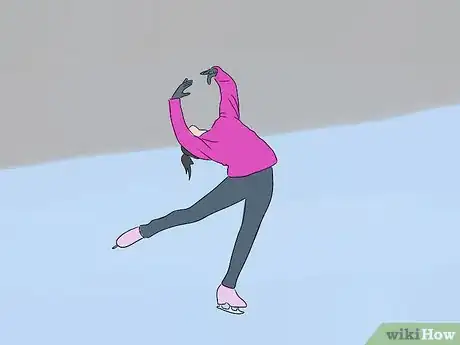
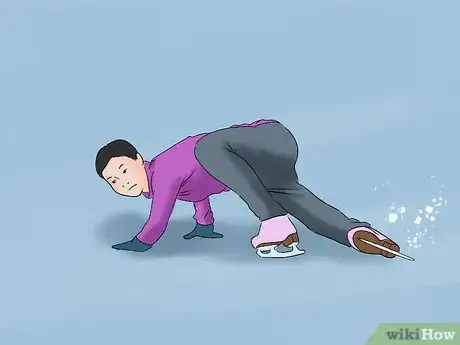
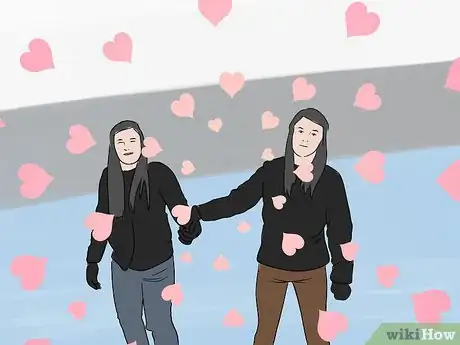
-Step-14.webp)

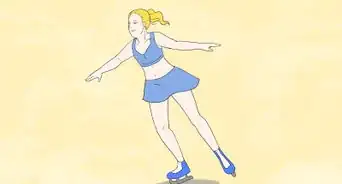
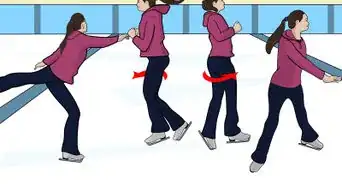
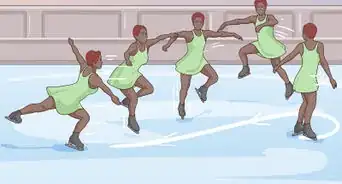
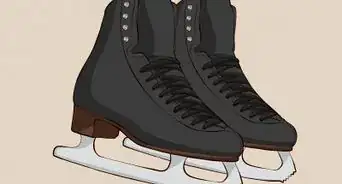
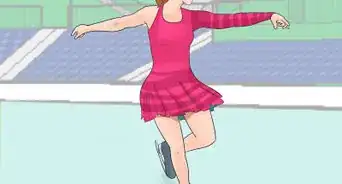
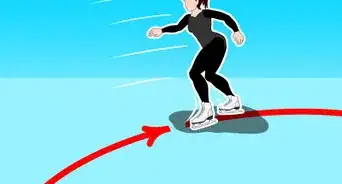
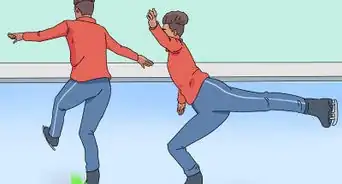
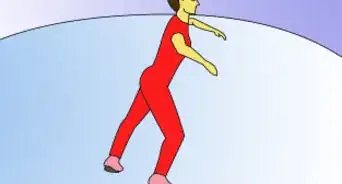






-Step-14.webp)

